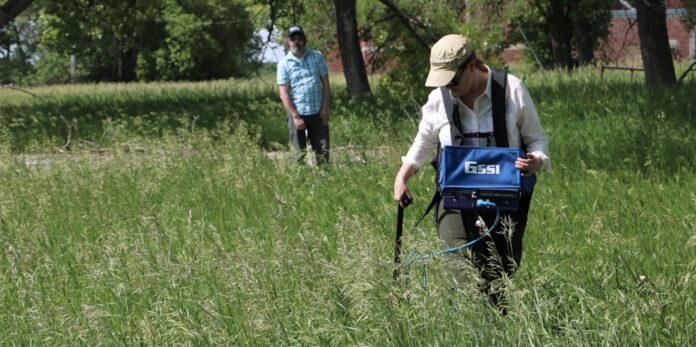
Warning: This story contains details that can be upsetting to readers
Ottawa committed $4.88 million in federal funding on Tuesday for Saskatchewan First Nations to research the burial sites of children at former residential schools in the province.
The uncovering of 215 children’s graves at the Kamloops Indian Residential School in British Columbia hit home for Saskatchewan First Nations where similar unmarked burial sites exist.
The funds will support the Federation of Sovereign Indigenous Nations (FSIN) in knowledge gathering and ceremonies related to those deaths and will help communities gather information for ground penetrating radar work to uncover the extent of residential school deaths.
“Ceremony, research, and important engagement with knowledge keepers, survivors and their descendants has been taking place over the last few weeks. Essential healing support has also been provided to a number of our survivors who are once again reliving the horrific tragedies of their experiences at residential schools,” FSIN Chief Bobby Cameron said.
“There are hundreds of survivors and descendants that have provided testimony of classmates that did not return home from residential schools and sanitariums across the province.”
The funding comes from $27.1 million that was set aside to address Calls to Action from the Truth and Reconciliation Commission’s 2015 Final Report that deal with “Missing Children and Burial Information.”
Cameron said ground penetrating radar teams are being sent to sites across the province in the hopes of locating these children to bring closure to the survivors, their descendants, and their communities.
He called the initiative a positive step toward healing and reconciliation as a way for the government to “finally give these families and communities the closure they deserve and peace to the thousands of little souls in the unmarked graves surrounding these schools.”
On Monday, which was National Indigenous Peoples Day, the House of Commons adopted a Bloc Québécois motion calling for financial commitments to support Indigenous communities to locate unmarked graves linked to residential schools. Religious institutions involved in the schools are expected to grant access to those sites along with any relevant archives.
Minister of Crown-Indigenous Relations Carolyn Bennett said the Truth and Reconciliation Commission’s estimate that 566 children died at residential schools in the province is likely an understatement.
“This has been a difficult time for First Nations, Inuit and Métis across Canada. Saskatchewan First Nations know best what they need and Canada will be there with the FSIN to support them in ways that are First Nation-led, community-based, survivor-centric and culturally-sensitive,” Bennett said.
“We are here to support survivors, families and communities with essential healing supports for those once again reliving the horrific tragedies of their experiences at residential schools. We will be there for all communities. We must never forget those innocent souls lost due to colonial policies – this is our collective commitment towards reconciliation.”
The funding was announced at the former Muscowequan Indian Residential School on the Muskowekwan First Nation —100 kilometres northwest of Melville.
Muscowequan is the last standing fully intact residential school building in Saskatchewan. Gordon Indian Residential School in nearby Punnichy, the last residential school officially operated by the Canadian government, was closed in 1996.
FSIN Vice Chief David Pratt said this is “just the beginning” of a long-term reckoning with the legacy of the residential school system.
“It’s going to be a rough couple of years for us as we move forward, as the count goes higher. We know it will,” Pratt said.
The funding is preliminary and will be used to support the FSIN and the 74 First Nations it represents. Pratt said it is up to the member nations and their communities to decide if they want to participate.
“When they’re ready. We don’t want to push anybody. We want to respect that tribal sovereignty and when they’re ready to start, we’ll be there to provide support,” Pratt said.
“It’s a very, very difficult time for people right now.”
— With files from Alec Salloum/Regina LeaderPost
A national 24-hour Indian Residential School Crisis Line is available to support survivors and those affected. You can access emotional and crisis support referral services by calling 1-866-925-4419.

